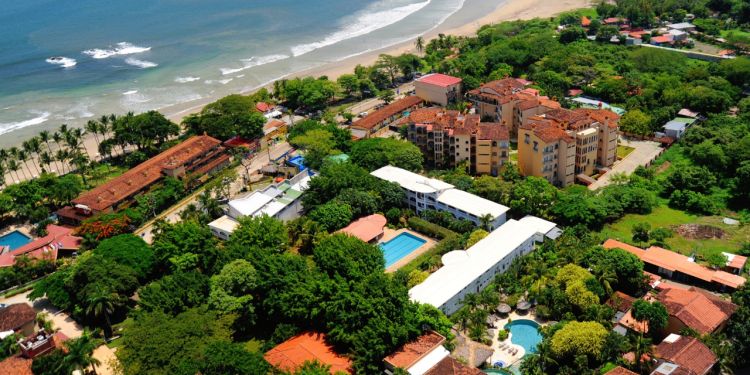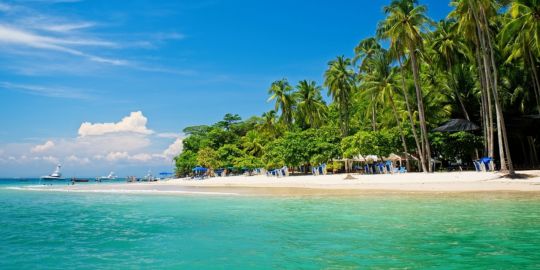Buying a property in Costa Rica

Costa Rica's political and economic stability, as well as its natural beauty and pleasant climate, make it an attractive place to live. Furthermore, fortunately for foreigners, property in this Central American destination is considerably cheaper than in Europe, Australasia and North America. Read this article to find out more.
Generally speaking, it is safe to buy real estate in Costa Rica, but it's important nevertheless to ensure that no one takes advantage of you. To avoid any issues, it is, therefore, worth hiring the services of a reputable real estate agent and real estate attorney ' even if it involves additional expense.
Several factors may influence where you choose to buy property in Costa Rica, such as the type of property, your budget, and your ideal climate (Costa Rica is known for its microclimates). Guanacaste and the Central Pacific are very popular for retirement and holiday homes, while families and professionals tend to prefer cities, such as Santa Ana and Escazu. Before you make any decisions, be sure to do your research about the area, including access to hospitals, convenient amenities, availability of services, and security. It's also a good idea to be clear on how you intend to use the property. If you wish to buy real estate as an investment rather than for your own needs, you should take into account certain factors, such as that some condos and gated communities may have restrictions when it comes to being rented to holidaymakers. You should also consider building maintenance, as you may require a property management service if you are not going to be in the country to oversee the work. A word for the wise ' if you intend to buy land for development purposes, consider hiring a property manager as it's best not to leave it unattended for squatters to move in.
It is also important to be aware that electrical, construction and drainage issues can be a common problem, so be sure to look past the aesthetics of the house. Try to visit the property when it is raining, and pay attention to small details ' turn on the lights, check the doors and the faucets. Research the developers and look into projects completed by the construction company in charge of your property, and get as many details as possible from the seller, such as blueprints. It's also advisable for an engineer and an architect to inspect the property if possible.
Types of property
There are a plethora of property options in Costa Rica, from condominiums and gated communities to beachfront or commercial properties.
When it comes to buying property in Costa Rica, foreigners (resident or non-resident) and locals have the same rights, and ownership is protected by the country's constitution. You can even legally buy a property or piece of land on a tourist visa, without living in Costa Rica.
The only two exceptions for foreigners is that you cannot own agricultural property that was donated to poor farmers by the INDER (former IDA) until the farmer has owned it for 15 years, and you cannot own 100% of a beachfront property in a Zona Maritima (Maritime Zone).
The Zona Maritima (ZMT) is a 200-metre strip that starts at the average high tide mark ' this is divided into a public zone, which is a protected 50-metre strip closest to the shore, and the remaining 150 metres that may be subject to concession rights for a limited period of time (usually 20 years, but multiple lease terms can be acquired). Concession land is very valuable, so is usually subject to higher taxes, as well as stricter zoning restrictions and regulations that make it difficult to develop. Nevertheless, beachfront properties in concession areas are still highly desirable, but foreigners who have been residing for over five years in the country can only own up to 49% of a concession. They can do this by purchasing the shares of a company that has the concession or occupancy rights. However, according to the Deloitte Investor's Guide 2017, Costa Ricans must own the capital investment toward the development in a proportion of over 50%.
Titled property is the most common form of real estate in Costa Rica, constituting approximately 85% of all property in the country. All information for titled properties should be provided by the seller, then verified at both the public registry and corresponding municipality.
There is very little untitled land left in Costa Rica that has not been recorded in the Public Registry. However, although it is not very common, it is still possible and it's best to avoid buying untitled property in order to avoid any problems regarding ownership in the future.
If you wish to buy property in a gated community, there is a variety of choices, from detached houses and townhouses to apartments and condos. Gated communities have become quite popular in Costa Rica as they offer security, common areas, such as a swimming pool, and a sense of community.
However, they can also come with architectural guidelines and land-use restrictions, as well as rules that restrict pets and certain social activities. If you intend to rent out a property in a gated community, be sure to check the restrictions and allowances in the bylaws.
Costs
Purchase fees can vary in Costa Rica depending on various factors, such as whether you buy a property in your name or through a company; and which attorney you use ' some charge a fixed fee, while others charge a percentage of the value of the property (usually 1%-2%). You should also bear in mind that the public registry stamp can add another 1% to your total, and the transfer tax stands at about 1.5%.
It's advisable to consult a real estate attorney or a tax expert before you make any decisions, so as to be clear on how much you will need to pay in property taxes each year. Generally, property taxes are calculated as 0.25% of the value of the property. It's also worth visiting the corresponding municipality that collects this, as they will be able to clarify the details.
It's also worth bearing in mind that houses that are worth more than ¢129 million (~US$228,000) are subject to paying the solidarity tax (impuesto solidario), which is also known as the luxury home tax. This tax starts from 0.25% for properties of up to ¢323 million (~US$570,000), and increases in increments of 0.05%, before reaching a maximum of 0.55% for properties that exceed ¢1.943 billion in total (~US$3.4 million).
Once you have bought a property in Costa Rica, it's important to register the property in your name or corporation and confirm everything is in order at the Public Registry. Be sure to keep copies of all legal documents and get comprehensive insurance that will cover you in the event of a natural disaster.
Finding a property
You can start searching for properties online and it's worth visiting the location that you are interested in several times. You can also browse the Tico Times Real Estate section to see if you can find anything suitable.
A real estate agent can also help you to find a property in Costa Rica, but it's worth researching the agent beforehand and finding one you are happy with, who knows an area well, as a good agent can help you for years to come with all your needs. If you get to know an agent well, they can let you know suitable options when they come up, as opposed to just show you what they have listed.
Do bear in mind that it is usually the seller, not the buyer, who pays the commission to a real estate agent. This tends to be around 5% in the Central Valley but can reach up to 7% or even 8% in other parts of the country, especially for exclusive listings. As a buyer, you shouldn't have to pay this commission.
It's also wise to hire a bilingual real estate attorney that has a SUGEF-approved escrow account, as well as a notary public, as only a notary public will be able to record your purchase in the National Registry.
When you find a property that you like, don't make a verbal offer, but rather ask your real estate agent to take a written offer to the seller. Once you have agreed on a price, the agent should ask your attorney to draw up a formal purchase and sale agreement, which should be signed by both you and the seller. Unless you agree differently, you should then be prepared to wire 10% of the price into escrow with your lawyer. Do note that the agreement will not be legally binding until the deposit arrives in escrow.
Useful links:
Expat.com ' Accommodation in Costa Rica Forum
Expat.com ' Housing in Costa Rica
Registro Nacional www.registronacional.go.cr
Ministerio de Hacienda www.hacienda.go.cr









